Do you have cataracts? Are you considering cataract surgery to improve your vision?
Millions of people undergo cataract surgery every year to eliminate their cataracts and experience greater visual freedom. Although cataract surgery has the potential to bring you clearer vision, you may be wondering if there are any side effects you need to know about, such as dry eye syndrome.
Keep reading to learn more about whether cataract surgery can cause dry eyes.
What is Dry Eye?
Dry eye, or dry eye syndrome, is a common condition that occurs when your eyes do not produce enough tears or the tears cannot properly lubricate the eye. This can happen if your tears are missing one of the vital components of a healthy tear film: water, oil, or mucus.
Many people experience dry eyes from time to time. However, if the condition becomes chronic, it is called dry eye syndrome and may require further treatment.
Common symptoms of dry eye include:
- Dry, irritated eyes
- Blurry vision
- Difficulty wearing contact lenses
- Feeling like something is in your eye
- Excessive tearing and mucus
- Red eyes
- Stinging and burning sensations in the eye
Visiting your eye doctor at Colorado Eye Consultants is the best way to determine the cause of your symptoms and get the treatment you need.
What is Cataract Surgery?
Cataract surgery is the only treatment that can remove cataracts and prevent them from developing again. Cataracts are tiny clumps of protein that develop on the natural lens of the eye as a result of aging.
Although patients with cataracts may not have symptoms in the early stages, as they continue to develop, you may experience symptoms such as:
- Blurry, cloudy vision
- Double vision
- Colors appearing faded or yellowed
- Difficulty seeing in low light or at night
- Halos and glare
- Light sensitivity
Once your symptoms interfere with your ability to complete everyday activities like driving, reading, or socializing, it is time to consider cataract surgery. The procedure is minimally invasive and takes only about 10 to 15 minutes.
Your cataract surgeon at Colorado Eye Consultants will carefully remove the natural lens of your eye and replace it with an intraocular lens, or IOL. This IOL cannot develop cataracts, and if you choose a premium IOL, you may be able to enjoy better vision than you ever had before cataract surgery.
Can Cataract Surgery Cause Dry Eye?
Cataract surgery can potentially disrupt the tear film of your eye, causing dry eye symptoms. Many people who undergo cataract surgery develop dry eye, and it can worsen symptoms in patients who had dry eye before their procedure.
Dry eye symptoms after cataract surgery tend to only be temporary, lasting around three months. However, if you experience persistent dry eye, you may want to consider further treatment.
What Treatments Are Available for Dry Eye?
Depending on the level of your symptoms, your eye doctor at Colorado Eye Consultants may recommend:
Artificial Tears
For those with milder symptoms, you can pick up artificial tears at your local pharmacy and apply as needed or on a regular basis to moisten your eyes.
Prescription Eye Drops
If artificial tears are not enough to lubricate your eyes, your eye doctor may prescribe special eye drops that help reduce inflammation or encourage natural tear production.
Although dry eye is a potential side effect of cataract surgery, many effective treatments can help you get relief. However, cataract surgery is the only treatment that can restore vision impaired by cataracts.
Do you want to learn more about reclaiming your vision with cataract surgery? Schedule an appointment at Colorado Eye Consultants in Littleton, CO, today!

